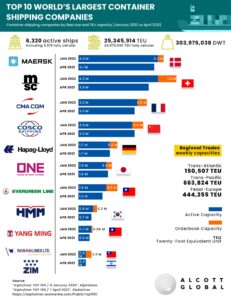The Largest Companies in Sudan
admin
- 0
Largest Companies in Sudan
The DAL Group is one of the largest private conglomerates in Sudan, with operations in several sectors. Founded in 1975 by Mikhail Haggar, the company expanded over time through both acquisition of existing companies and greenfield investments in Sudan and abroad. During the 1990s, the company purchased several firms, including Pasgianos Food & Beverages and Coldair Engineering. The DAL Group also has footholds in mining, healthcare distribution, and industrial gas.
Despite the diverse nature of the Sudanese economy, the country’s natural resources and diverse society categories provide substantial benefits for companies and investors alike. For this reason, big companies tend to establish their businesses in Sudan. The country’s diverse resources and society categories support a diverse range of investment projects. These factors have led to the rise of several large corporations and the subsequent emergence of a number of new players in the market.
While the government has taken steps to make taxation simpler, there are many obstacles to doing business in South Sudan. The country does not have a unified formal judicial system, which encourages businesses to “forum-shop” for lower costs and faster transactions. Foreign companies operating in the country may be able to leverage the power of major U.S. companies to resolve disputes, but small and medium-sized enterprises will have to operate under arbitrary and non-binding rules.
The government of Sudan has been accused of numerous human rights abuses. The country’s oil revenues have been used to fund the army, which has been responsible for more than half of all Sudanese deaths in the country’s civil war since 1983. There have also been reports of gang rape, torture, and forced enslavement. The government is estimated to make one million dollars per day in oil, but the people are suffering.

The Largest Companies in Sudan
In 1989, the government announced an economic reform plan. This plan involved cutting the government’s public sector deficit and ending subsidies and state-owned enterprises. It also focused on stimulating foreign and domestic investment. This program was unpopular with the pastoralists of Sudan, who faced great economic hardships. In the following years, the government began exporting crude oil and has since become a source of foreign direct investment. However, the government’s reform plans did not succeed in changing Sudan’s political system. Sudan’s government continues to implement macroeconomic reforms, but this process is taking longer than expected.
While the South Sudan Investment Act mentions the importance of foreign investment in the country, it is unclear how this is enforced. Foreign investors are not required to have a local stake in South Sudan companies, but South Sudan has given priority to South Sudanese businesses. However, foreign investors must apply for an investment certificate from the Ministry of Investment in Sudan. The Ministry of Investment verifies the benefits of investment before allowing foreign investors to invest.
largest family companies in Sudan
The South Sudanese government is determined to deport the southern indigenous groups of oil-rich lands. The government has intensified mass deportations of the Dinka and Nuer communities in recent years. Some 4.5 million people have been internally displaced. According to Colin Powell, “there is no greater tragedy on earth today.” Cultural Survival does not necessarily agree with the content of today’s news. The government must change its policies and promote development in the region.

